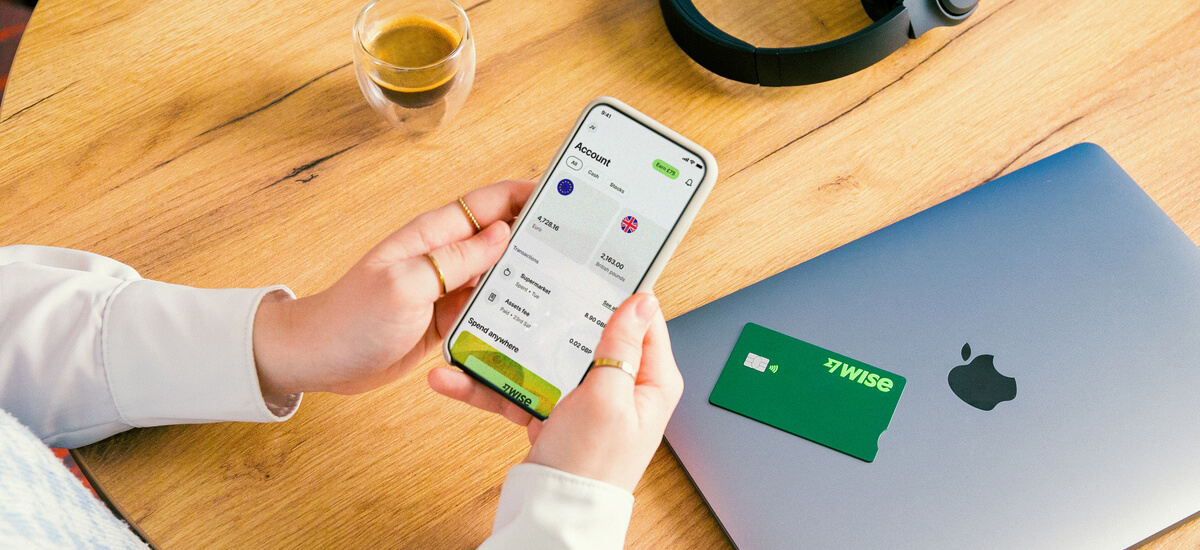Best Small Business Bank Account (UK - 2024)
If you’re just starting out on an entrepreneurial journey you need smart ways to manage your money. This probably means you’re looking for the best bank...

Looking for a new way to manage your business finances? One option to consider is Payoneer, a popular choice for ecommerce businesses, globally-operating SMEs and freelancers in the UK.
Payoneer is a global payments platform, letting your business pay and get paid across international borders and in multiple currencies. It has a handful of different accounts, each tailored towards particular business types.
If you’re thinking of signing up with Payoneer but aren’t sure which account type to choose, read on. We’ve put together a full comparison of the Payoneer Business vs. the Personal Account below, explaining the difference between the two. Plus, we’ll take a look at features, benefits and fees for each account, and tips on how to choose the right account for your needs.
We’ll even show you an alternative way to get paid easily by customers and clients all over the world - the Wise Business account, ideal for global businesses and freelancers alike.
💡 Learn more about Wise Business
Payoneer is a US-based platform that allows businesses to make and receive payments across international borders. It’s aimed at small-to-medium sized companies, particularly ecommerce businesses which sell online. However, it can also be used by freelancers and other types of entrepreneurs.
Payoneer’s services and accounts are split by customer type - Freelancer, Business and Marketplace, each offering a range of specially tailored services.
Payoneer doesn’t offer a personal account in the way that banks offer current accounts for personal customers. Instead, it has a freelancer account. It’s still designed for individuals, but only for freelance workers, contractors and professionals looking to use the account for business purposes. This means you can’t use it for day-to-day spending and payments (unless they’re business-related).
We’ll look at the main differences between the Payoneer Freelancer and Business Accounts next.
The Payoneer Business and Freelancer Accounts offer a number of similar features, and pricing is the same for the main services on offer.
However, there are a couple of key differences between these two account types.
The first is eligibility. If your business is registered with Companies House in the UK, you’ll need to sign up for a Payoneer Business Account. You’ll also need to provide documents such as your Certificate of Incorporation and proof of company activity.¹
But if you’re a freelancer or run a sole proprietorship that isn’t registered, you can open a Payoneer Freelancer account. A registered business can’t open a Freelancer Account.
Business Account holders must also provide details of who owns the business.¹
Payoneer also tailors the features and services available for each account according to the user. This makes sense, as most freelancers wouldn’t need the full range of features available for businesses.
The Payoneer Business Account is designed for sending and receiving cross-border payments. It’s particularly good for ecommerce businesses. It offers a range of features, services and tools to help businesses pay and get paid by global clients, suppliers, staff and contractors.
It supports payments in 190+ countries and 70 currencies.² You can connect your Payoneer account to marketplaces where your business sells, as well as adding Payoneer Checkout to your own website.
Features and benefits of the Payoneer Business Account include:
- International payments, including bulk payments and a feature to request and receive payments from customers and clients.
- Local receiving accounts.
- Client billing.
- Purchasing.
- Bank withdrawals.
- Multi-currency conversions so you can manage and convert between your account balances.
- Connect to Marketplaces like Amazon and eBay - Payoneer can be integrated with a huge 2,000+ marketplaces worldwide.²
- Website payments with Payoneer Checkout.
- Payment cards to cover business expenses.
- Pay VAT directly from your account.
The Payoneer Freelancer Account has many of the same features available as the Business Account, but it’s tailored for sole traders, freelancers and contractors.
The account is designed to make it easier for freelancers to get paid by clients from all over the world, in multiple currencies. Another useful feature is the option to connect Payoneer to freelance marketplaces and platforms such as Upwork and Fiverr - again, to facilitate easy payment from clients.
Features and benefits of the Payoneer Freelancer Account include:
- Request and receive payments from clients in multiple currencies.
- Invoice creation and management.
- Choice of payment methods including card, bank transfer, PayPal and more.
- Connect to global freelance marketplaces and seller platforms.
- Withdraw to your bank account.
- Manage currencies and transfer between balances.
- Payment cards (both physical and virtual) to cover your own business expenses.
- Track payments and download monthly reports, so you can stay on top of accounting.
Unlike some other business payment platforms, Payoneer doesn’t have monthly or yearly paid plans divided by tiers for different types of users. It actually doesn’t have any subscription fees at all, opting for a per-transaction pricing model instead. This means you can open an account for free, and then pay a small fee every time you pay, accept a payment, spend on a Payoneer card etc.
It also means that the pricing for its Freelancer and Business Accounts is the same. Although as a freelancer, you’re not likely to use all the same services as a larger business - or at least, you won’t have the same volume of transactions to pay for.
Here’s a look at the main fees for using Payoneer as a freelancer or business:³
| Transaction type | Payoneer fee |
|---|---|
| Online payments | - Pay - up to 3% - Receive - Up to 3.99% to receive credit card payments - Free to send and receive money to/from other Payoneer customers - Fees vary to get paid directly from marketplaces and seller platforms |
| International | - Pay - up to 3% - Receive - Free to receive payments into local receiving accounts |
| Payoneer card fees | Annual fee of $29.95 USD (approx. £23.70 GBP) |
| Spending with Payoneer cards | - Free for transactions in the same currency as your card - Up to 3.5% for transactions where currency conversion is involved |
| ATM withdrawals with Payoneer cards | £1.95 GBP per withdrawal |
| Read more about Payoneer fees |
|---|
The right Payoneer account for you all depends on what kind of business you run, and whether it’s a sole proprietorship or a registered company. It also depends on what services and features you’re likely to use.
Payoneer tailors its accounts to the business type, so it’s likely to be more useful and user-friendly if you can match the account type to your business.
If you need help deciding which account is best for you, it’s recommended to contact Payoneer customer services directly.
While you’re researching ways to manage business funds across borders, make sure you check out Wise Business. It’s ideal for global businesses, as well as freelancers working with clients based all over the world.

Open a Wise Business account and you can hold and exchange 40+ currencies at once. You can send payments to 160+ countries and get local account details to get paid in 8+ currencies like a local.
Use your Wise account to get paid in a selection of major foreign currencies by customers and clients, through marketplaces - and via payment service providers like Stripe.
Whenever you need to send, spend or exchange foreign currencies, you’ll benefit from the mid-market exchange rate, with low, transparent fees.
You’ll also benefit from all of these features with Wise Business:
- No ongoing fees, minimum balance requirements or foreign transaction fees
- Debit and expense cards for you and your team, which you can use in 150+ countries
- Multi-user access for team members, with ways to control and manage permissions
- Pay up to 1,000 people at once with the Wise batch payments feature
- Integrate with your favourite cloud accounting solutions, and use the Wise API for automation and streamlining workflow
- Use the Wise Interest feature to make your money work harder when you’re not using it.
With the help of a truly global account, your business can grow beyond international borders.
Get started with Wise Business 🚀
And that’s about it - everything you need to know about how the Payoneer Business and Personal (Freelancer) accounts stack up against each other.
They’re pretty similar in terms of features and pricing, but it is important to choose the right one to match your business type. Not only will you need to fall in line with Payoneer’s eligibility requirements, but it’ll also ensure that you get a fit-for-purpose solution - with features and services tailored to the exact needs of your business.
Sources used:
Sources last checked on date: 27-Jun-2024
*Please see terms of use and product availability for your region or visit Wise fees and pricing for the most up to date pricing and fee information.
This publication is provided for general information purposes and does not constitute legal, tax or other professional advice from Wise Payments Limited or its subsidiaries and its affiliates, and it is not intended as a substitute for obtaining advice from a financial advisor or any other professional.
We make no representations, warranties or guarantees, whether expressed or implied, that the content in the publication is accurate, complete or up to date.

If you’re just starting out on an entrepreneurial journey you need smart ways to manage your money. This probably means you’re looking for the best bank...

Find the best business saving accounts to maximize profits and ensure financial security for your growing business needs.

Read our comprehensive Virgin M business account review, including features, fees, customer service and more.

Read our comprehensive Acorn business account review, including features, fees, limits, customer service and more.

Revolut Business offers UK registered business owners several different account options to manage 25+ currencies, send and receive payments, take card...

Read our review of Payoneer vs. Revolut for UK businesses, comparing fees, features, security and more.